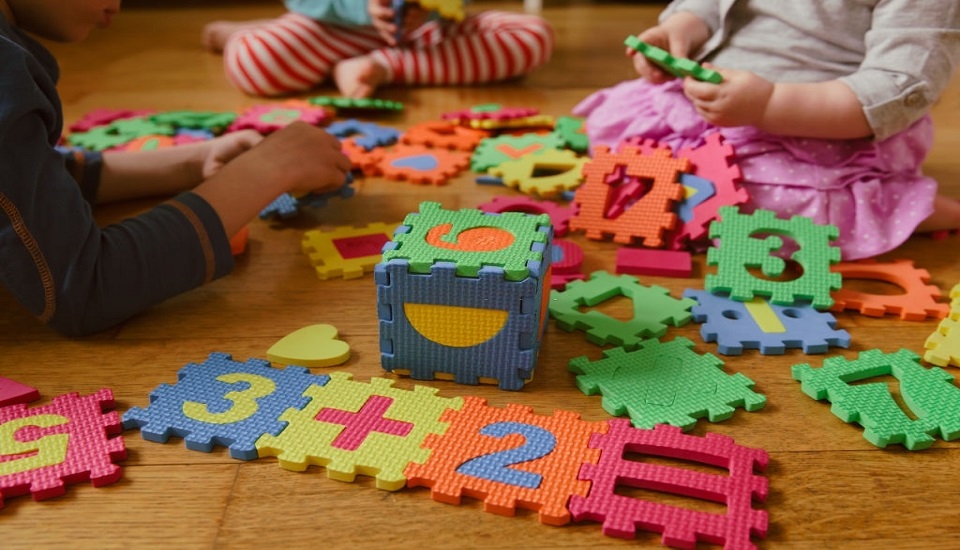There are always a lot of questions present in the minds of children. They look for logical explanations and their curiosity does not end unless they find a satisfactory answer. There are various teaching methodologies that help the children to satiate the hunger for knowledge. This spirit of inquiry has helped the children to grow their science vocabulary.
The pre and primary teacher training courses teach the aspiring teachers how to take care of the students in their early childhood. Children of this age group are gaping at answers that will make them understand anything they're stuck with. Aspirants, as well as experienced teachers, who love spending time with children, can opt for this course without a second thought.
One of the major topics the course covers is formulating strategies for building and understanding science vocabulary. Young learners love watching colorful experiments and such experiments are possible in science laboratories. This is the best place where students can learn multiple scientific vocabularies.
How to improve student engagement by supporting vocabulary building in science classes:
There are certain interesting teaching methodologies that enhance students' active participation in the class. Calling spade a spade, a child involves himself/herself in a class only when the subject matter is appealing enough. With the help of constructive designs, children learn the scientific terms easily and understand the academic concepts.
Well, there are quite a few numbers of approaches that increase the science vocabulary of children.
Sketch and learn: Being an early childhood teacher, he/she is expected to be quite matured to understand that children love visual representation. Suppose a teacher has planned to teach the water cycle. This topic involves several scientific terms like evaporation, condensation, precipitation, and so on.
The teacher can sketch a diagram and label the mentioned terms in appropriate positions. He/she can put arrows to make the diagram easy to understand for the students and then can ask them their thoughts on those terms. Children will automatically grow enthusiastic to figure out the meaning of those terms, and hence their knowledge will increase.
Questionnaire: A pannel of questions can be presented to the children. It might be a true/false one or something that requires to be answered in just one or two sentences. Suppose, a small assessment can be arranged, having 10 questions based on a chapter that has been taught before.
Let's say the 10 questions are all about explaining the terms in one or two sentences. Easy scientific terms for kids like fossil fuel, evergreen trees, solar systems, etc., can be there in the questions. Children will learn more about the topics before attending the test and also will come across several relevant terms related to those.
Watching science movies: Teachers can conduct a movie session with children based on scientific films. Such movies will trigger the hunger for learning new scientific terms in children. A scientific movie will be one of the best solutions because kids get attracted to audio-visual technologies. Tons of brilliant scientific movies are there like Microsoms, Antarctica: A year on ice, Pirates of Silicon Valley, To the Arctic, and so on.
Puzzle games: This is indeed a fantastic idea. The teacher once done with teaching 1 or 2 chapters of science can arrange for a puzzle game based on scientific terms. Game-based learning has always encouraged kids to get themselves involved actively. This will enhance students' engagement and their science vocabulary will also increase.
Group discussion: In a bunch of students, there is a mixture of students. Some are proactive while a few might be a bit shy. It is one of the biggest opportunities the shy kids will get to overcome their hesitation. The teacher must mention that participation of all the students will be mandatory. Thus, everyone will be equally involved in it.
A great group discussion will be a platform for students to talk about several scientific terms and this will polish their proficiency in science vocabulary.
Educational excursion: A tour to a museum has proven to be highly effective. Such an educational excursion will always help the children to learn more. A museum is not only having historical information but also tons of scientific artifacts. That ambiance will elevate the student's motivation and their interest in science will take off with a higher speed.
School garden: Sometimes, a tour around the school garden with lots of vibrant flowers, butterflies, and other stuff grabs the attention of the students. They wonder what could be the names of the flowers and thus earn a good deal of information.
Such methodologies have always been extremely helpful in chalking out strategies for building and understanding science vocabulary. It is always important that a child should have his/her curiosity answered. Being a primary and pre-primary teacher, it is the responsibility of the educator to find out what makes a student enthusiastic. Based on that several plans can be formulated.
Written By : Soma Pillai
